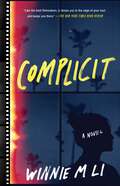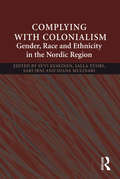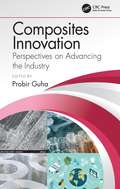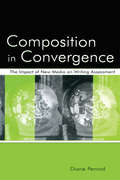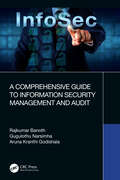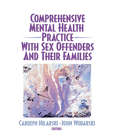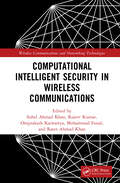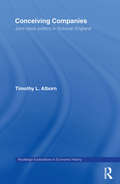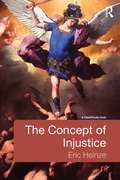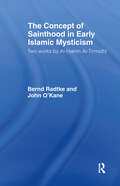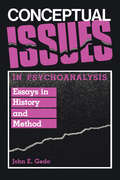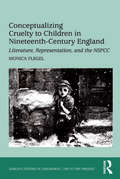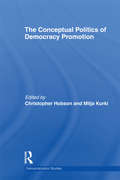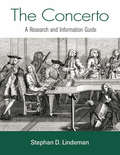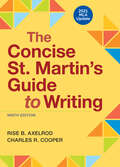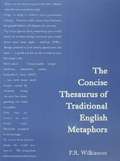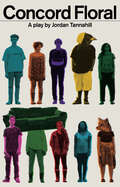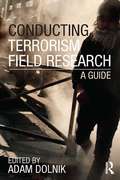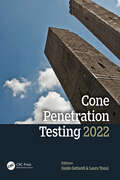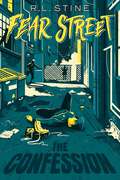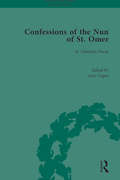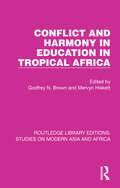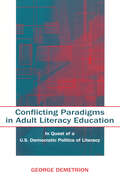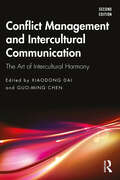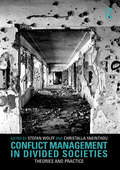Special Collections
Benetech’s Global Certified Accessible Titles
Description: Benetech’s GCA program is the first independent third-party EPUB certification to verify ebook accessibility. By creating content that is born accessible, publishers can meet the needs of all readers. Learn more: https://bornaccessible.benetech.org/
- Table View
- List View
Complicit
by Winnie M LiAfter a long-buried, harrowing incident, a woman whose promising film career was derailed has an opportunity for revenge in this visceral and timely thriller about power, privilege, and justice. A Hollywood has-been, Sarah Lai&’s dreams of success behind the camera have been put to the wayside. Now a lecturer at an obscure college, this former producer wants nothing more than to forget those youthful ambitions and push aside any feelings of regret…or guilt. But when a journalist reaches out to her to discuss her own experience working with the celebrated film producer Hugo North, Sarah can no longer keep silent. This is her last chance to tell her side of the story and maybe even exact belated vengeance. As Sarah recounts the industry&’s dark and sordid secrets, however, she begins to realize that she has a few sins of her own to confess. Now she must confront her choices and ask herself, just who was complicit?
Complying With Colonialism
by Diana Mulinari and Suvi Keskinen and Salla Tuori and Sari IrniComplying with Colonialism presents a complex analysis of the habitual weak regard attributed to the colonial ties of Nordic Countries. It introduces the concept of ’colonial complicity’ to explain the diversity through which northern European countries continue to take part in (post)colonial processes. The volume combines a new perspective on the analysis of Europe and colonialism, whilst offering new insights for feminist and postcolonial studies by examining how gender equality is linked to ’European values’, thus often European superiority. With an international team of experts ranging from various disciplinary backgrounds, this volume will appeal not only to academics and scholars within postcolonial sociology, social theory, cultural studies, ethnicity, gender and feminist thought, but also cultural geographers, and those working in the fields of welfare, politics and International Relations. Policy makers and governmental researchers will also find this to be an invaluable source.
Composites Innovation
by Probir GuhaComposites Innovation: Perspectives on Advancing the Industry provides a panoramic view of innovations in the composites industry, including discussions from business leaders and the university research community on advanced applications in North America, advances in recycling of composites, the use of artificial intelligence, nanocomposites, and emerging smart composites technology. The book is arranged in five key segments including: how composites fit into our world; the basics of the technology; customer insights; pushing the boundaries with concepts from outside the world of composites and emerging composites technologies; and paths forward to find competitive and effective solutions in a timely manner. Key Features Considers sustainability and innovation as driving forces for the growth of composites Explores materials and process development, including chopped and continuous fiber systems Provides a landscape of the status of intellectual property and patents Discusses use of artificial intelligence to improve business systems with case studies and a new disciplined approach to ideation and innovation Features chapters by an accomplished group of global business and technology leaders With contributing authors spanning 15 time zones to pioneer new solutions with composite materials, this book provides an excellent resource for composites business leaders, researchers and educators, and industry professionals, as well as new entrants to this vibrant community.
Composition in Convergence
by Diane PenrodComposition in Convergence: The Impact of New Media on Writing Assessment considers how technological forms--such as computers and online courses--transform the assessment of writing, in addition to text classroom activity. Much has been written on how technology has affected writing, but assessment has had little attention. In this book, author Diane Penrod examines how, on the one hand, computer technology and interactive material create a disruption of conventional literacy practices (reading, writing, interpreting, and critique), while, on the other hand, the influence of computers allows teachers to propose and develop new models for thinking and writing to engage students in real-world settings.This text is intended for scholars and educators in writing and composition, educational assessment, writing and technology, computers and composition, and electronic literacy. In addition, it is appropriate for graduate students planning to teach and assess electronic writing or teach in online environments.
A Comprehensive Guide to Information Security Management and Audit
by Rajkumar Banoth and Gugulothu Narsimha and Aruna Kranthi GodishalaThe text is written to provide readers with a comprehensive study of information security and management system, audit planning and preparation, audit techniques and collecting evidence, international information security (ISO) standard 27001, and asset management. It further discusses important topics such as security mechanisms, security standards, audit principles, audit competence and evaluation methods, and the principles of asset management. It will serve as an ideal reference text for senior undergraduate, graduate students, and researchers in fields including electrical engineering, electronics and communications engineering, computer engineering, and information technology. The book explores information security concepts and applications from an organizational information perspective and explains the process of audit planning and preparation. It further demonstrates audit techniques and collecting evidence to write important documentation by following the ISO 27001 standards. The book: Elaborates on the application of confidentiality, integrity, and availability (CIA) in the area of audit planning and preparation Covers topics such as managing business assets, agreements on how to deal with business assets, and media handling Demonstrates audit techniques and collects evidence to write the important documentation by following the ISO 27001 standards Explains how the organization’s assets are managed by asset management, and access control policies Presents seven case studies
Comprehensive Mental Health Practice with Sex Offenders and Their Families
by M. Carolyn Hilarski and John S WodarskiA comprehensive look at the many types of male and female sex offenders who victimize children, adolescents, and adultsComprehensive Mental Health Practice with Sex Offenders and Their Families presents practitioners, professionals, and policymakers with effective, user-friendly practice methods for working with all types of sex offenders. Each chapter provides an overview of a specific category of sex offender and presents case examples and sample treatment plans with short- and long-term goals and objectives. This unique book also includes the latest assessment and intervention methods, family and relapse prevention efforts, and cultural issues that affect service delivery.Comprehensive Mental Health Practice with Sex Offenders and Their Families examines the etiology, prevalence, and behavioral consequences of eight different sex offender typologies to provide you with a much broader focus than you&’ll find in other sex offender books currently on the market. The book explores gender issues, demographics, offense characteristics, family characteristics, and assessment issues in dealing with both male and female sex offenders who use psychological and physical means to victimize children, adolescents, and adults. The end result is effective as a reference for health and mental health practitioners, as a resource for program implementation and outcome evaluation for policymakers and researchers, and as a classroom aid for the next generation of social workers and health and mental health providers.Comprehensive Mental Health Practice with Sex Offenders and Their Families examines: child sex offendersinappropriate, developmentally precocious, and aggressive sexual behavior among children adolescent sex offenderscriminal sexual acts committed by juveniles adult male sex offendersthe average male sexual molester will victimize hundreds of children in his lifetime women who sexually abuse childrenchallenging the stereotypes about motherhood and female-child relationships professional perpetratorsclerics, teachers, tutors, athletic coaches intellectually and developmentally challenged sex offenderssexually abusive acts committed by people with intellectual disabilities (ID) violent sex offendersphysical and psychological injuries suffered during sexual violation comorbid psychopathology in child, adolescent, and adult sexual offendersanti-social, narcissistic, and sadistic behaviors, learning problems, neuropsychological impairments, and moreComprehensive Mental Health Practice with Sex Offenders and Their Families is an essential resource for anyone working with diverse groups of sex offenders.
Computational Intelligent Security in Wireless Communications
by Suhel Ahmad Khan, Rajeev Kumar, Omprakash Kaiwartya, Mohammad Faisal, and Raees Ahmad KhanWireless network security research is multidisciplinary in nature, including data analysis, economics, mathematics, forensics, information technology, and computer science. This text covers cutting-edge research in computational intelligence systems from diverse fields on the complex subject of wireless communication security. It discusses important topics including computational intelligence in wireless network and communications, artificial intelligence and wireless communication security, security risk scenarios in communications, security/resilience metrics and their measurements, data analytics of cyber-crimes, modeling of wireless communication security risks, advances in cyber threats and computer crimes, adaptive and learning techniques for secure estimation and control, decision support systems, fault tolerance and diagnosis, cloud forensics and information systems, and intelligent information retrieval. The book: Discusses computational algorithms for system modeling and optimization in security perspective Focuses on error prediction and fault diagnosis through intelligent information retrieval via wireless technologies Explores a group of practical research problems where security experts can help develop new data-driven methodologies Covers application on artificial intelligence and wireless communication security risk perspective The text is primarily written for senior undergraduate, graduate students, and researchers in the fields of electrical engineering, electronics and communication engineering, and computer engineering. The text comprehensively discusses wide range of wireless communication techniques with emerging computational intelligent trends, to help readers understand the role of wireless technologies in applications touching various spheres of human life with the help of hesitant fuzzy sets based computational modeling. It will be a valuable resource for senior undergraduate, graduate students, and researchers in the fields of electrical engineering, electronics and communication engineering, and computer engineering.
Conceiving Companies
by Timothy L. AlbornQuestions concerning the relationships and boundaries between 'private' business and 'public' government are of great and perennial concern to economists, economic and business historians, political scientists and historians.Conceiving Companies discusses the birth and development of joint-stock companies in 19th century England, an area of great importance to the history of this subject. Alborn takes a new approach to the rise of large scale companies in Victorian England, including the Bank of England and East India Company and Victorian railways, locating their origins in political and social practice. He offers a new perspective on an issue of great significance, not only for historians, but for political scientists and economists.
The Concept of Injustice
by Eric HeinzeThe Concept of Injustice challenges traditional Western justice theory. Thinkers from Plato and Aristotle through to Kant, Hegel, Marx and Rawls have subordinated the idea of injustice to the idea of justice. Misled by the word’s etymology, political theorists have assumed injustice to be the sheer, logical opposite of justice. Heinze summons ancient and early modern texts, philosophical and literary, with special attention to Shakespeare, to argue that injustice is not primarily the negation, failure or absence of justice. It is the constant product of regimes and norms of justice. Justice is not always the cure for injustice, and is often its cause.
The Concept of Sainthood in Early Islamic Mysticism
by Bernd Radtke and John O'KaneThis book provides translations of the earliest Arabic autobiography and the earliest theoretical explanation of the psychic development and powers of an Islamic holy man (Saint, Friend of God).
Conceptual Issues in Psychoanalysis
by John E. GedoIn Conceptual Issues in Psychoanalysis, John Gedo's mastery of Freudian theory and broad historical consciousness subserve a new goal: an understanding of "dissidence" in psychoanalysis. Gedo launches his inquiry by reflecting expansively on recent assessments of Freud's character. His acute remarks on the intellectual and personal agendas that inform the portraits of Freud offered by Frank Sulloway, Jeffrey Masson, and Peter Swales pave the way for his own definition of psychoanalysis in historical context. Then, in topical studies on Sandor Ferenczi, Melanie Klein, and Heinz Kohut, he explicates the commonalities that bind together three generations of dissidents, each of whom undertook to supplant the edifice of hypotheses erected by Freud with alternative theories. Interspersed with these essays are quite insightful studies of Lou Andreas-Salome and David Rapaport, whom Gedo sees as "epistemological referees" attempting to reconcile viewpoints unique to their generations. In the second part of the book, Gedo argue that analysis now has the opportunity to move beyond this pattern of dissidence followed by mediation by drawing on observational research about infancy and early childhood to validate or refute its clinical hypotheses. In these chapters, Gedo offers critical commentary on recent efforts to extrapolate from infant research to the psychoanalytic theory of development. Only then does he offer his own measured estimation of the "legacy of infancy and the technique of psychoanalysis." This review of "the challenge of scientific method" as it bears on analysis culminates in concluding chapters that probe the status of analysis as a hermeneutic discipline and the contribution of analysis to "vocabularies of moral deliberation."
Conceptualizing Cruelty to Children in Nineteenth-Century England
by Monica FlegelMoving nimbly between literary and historical texts, Monica Flegel provides a much-needed interpretive framework for understanding the specific formulation of child cruelty popularized by the National Society for the Prevention of Cruelty to Children (NSPCC) in the late nineteenth century. Flegel considers a wide range of well-known and more obscure texts from the mid-eighteenth century to the early twentieth, including philosophical writings by Locke and Rousseau, poetry by Coleridge, Blake, and Caroline Norton, works by journalists and reformers like Henry Mayhew and Mary Carpenter, and novels by Frances Trollope, Charles Dickens, Wilkie Collins, and Arthur Morrison. Taking up crucial topics such as the linking of children with animals, the figure of the child performer, the relationship between commerce and child endangerment, and the problem of juvenile delinquency, Flegel examines the emergence of child abuse as a subject of legal and social concern in England, and its connection to earlier, primarily literary representations of endangered children. With the emergence of the NSPCC and the new crime of cruelty to children, new professions and genres, such as child protection and social casework, supplanted literary works as the authoritative voices in the definition of social ills and their cure. Flegel argues that this development had material effects on the lives of children, as well as profound implications for the role of class in representations of suffering and abused children. Combining nuanced close readings of individual texts with persuasive interpretations of their influences and limitations, Flegel's book makes a significant contribution to the history of childhood, social welfare, the family, and Victorian philanthropy.
The Conceptual Politics of Democracy Promotion
by Milja Kurki and Christopher HobsonHow do different meanings of the concept of ‘democracy’ operate in democracy promotion? How do conceptual decisions influence real political events? How is policy and reflection on democracy promotion shaped by the way different practitioners and scholars understand democracy? The Conceptual Politics of Democracy Promotion explores the way in which the meaning, content and context of ‘democracy’ are interpreted by different actors in democracy promotion, and how these influence political decisions. Introducing a theoretically new approach to the study of democracy promotion, the volume shows how the alternate ways that democracy can be understood reflects specific interpretations of political and normative ideals, as well as being closely tied to social power relations, interests, and struggles between political actors. With original contributions from some of the most prominent specialists on democracy promotion and democratization, the book examines a number of concrete cases of democracy promotion and contestation over democracy’s meaning. Re-examining democracy promotion at its time of crisis, this book will be of interest scholars and students of democracy and democratization, politics and international relations, international law, development studies and political theory.
The Concerto
by Stephan D. LindemanTwelve-tone and serial music were dominant forms of composition following World War II and remained so at least through the mid-1970s. In 1961, Ann Phillips Basart published the pioneering bibliographic work in the field.
The Concise St. Martin's Guide to Writing with 2021 MLA Update
by Rise B. Axelrod and Charles R. CooperThis ebook has been updated to provide you with the latest guidance on documenting sources in MLA style and follows the guidelines set forth in the MLA Handbook, 9th edition (April 2021).The Concise St. Martin's Guide provides step-by-step guides to writing and reading to help you learn those essential skills and apply them to all of your college courses.
Concise Thesaurus of Traditional English Metaphors
by Dick WilkinsonThis absorbing collection of metaphors includes a variety of expressions with figurative meanings, like similes, proverbs, slang and catchphrases. It is the result of a lifetime of work on dialect and metaphor and gives an overview of the folk wisdom expressed in figurative expressions. The author draws on his extensive contact with the rural cultures of Dorset, Cornwall, Yorkshire and Lancashire, but has also included a range of sayings from North America, Australia, Scotland and other English speaking countries. With revised contents and an improved index to make individual entries easier to find, the Concise can be used to check the meaning and the origin of an expression or to avoid mixed metaphors, anachronisms and incongruities. It is a joy to browse long after your original query has been answered.
Concord Floral
by Jordan TannahillConcord Floral is a one-million-square-foot abandoned greenhouse and a refuge for neighbourhood kids; a place all to themselves in which to dream, dare, and come of age. But hidden there is a secret no one wants to confront, and when two friends stumble upon it they set off an unstoppable chain of events, from shadows in parking lots to phone calls from the grave. It's time for the teens of Concord Floral to start talking.
Conducting Terrorism Field Research
by Adam DolnikThis book offers a detailed and practically oriented guide to the challenges of conducting terrorist fieldwork. The past decade has seen an explosion of research into terrorism. However, field research on terrorism has traditionally been surrounded by many myths, and has been called anything from "necessary" and "crucial" to "dangerous", "unethical" and "impossible". While there is an increasing interest among terrorism specialists in conducting such research, there is no single volume providing prospective field researchers with a guideline to such work. Conducting Terrorism Field Research aims to fill this gap and offers a collection of articles from experienced authors representing different risk groups, disciplines, methodological approaches, regional specializations, and other context-specific aspects. Each contributor provides a road-map to their own research, describing planning and preparation phases, the formalities involved in getting into conflict zones and gaining access to sources. The end product is a 'how to' guide to field research on terrorism, which will be of much value to terrorism experts and novices alike. This book will be of much interest to students and researchers of terrorism studies, war and conflict studies, criminology, IR and security studies.
Cone Penetration Testing 2022
by Guido GottardiThis abstracts volume (including full keynote and invited papers) contains the proceedings of the 5th International Symposium on Cone Penetration Testing (CPT’22), held in Bologna, Italy, 8-10 June 2022. More than 500 authors - academics, researchers, practitioners and manufacturers – contributed to the peer-reviewed papers included in this book, which includes three keynote lectures, four invited lectures and 169 technical papers. The contributions provide a full picture of the current knowledge and major trends in CPT research and development, with respect to innovations in instrumentation, latest advances in data interpretation, and emerging fields of CPT application. The paper topics encompass three well-established topic categories typically addressed in CPT events: - Equipment and Procedures - Data Interpretation - Applications. Emphasis is placed on the use of statistical approaches and innovative numerical strategies for CPT data interpretation, liquefaction studies, application of CPT to offshore engineering, comparative studies between CPT and other in-situ tests. Cone Penetration Testing 2022 contains a wealth of information that could be useful for researchers, practitioners and all those working in the broad and dynamic field of cone penetration testing.
The Confession
by R. L. StineJulie's friends couldn't stand Al. In fact, they all wished Al were dead. But that doesn't mean one of them killed him. Julie knows her friends. She knows they're innocent...until one of them confesses to the murder. Julie and her friends make a pact to keep the killer's secret. They're sure it was a one-time thing. It will never happen again. ...Will it?
Confessions of the Nun of St Omer
by Lucy CoganCharlotte Dacre’s debut novel Confessions of the Nun of St Omer (1805) was a bestseller in its day, launching the career of a woman who would go on to become one of the nineteenth century’s most notorious female novelists. The work tells the story of the wilful Cazire, who recounts her passionate and destructive youthful adventures from the convent where she now lives in seclusion. Although Dacre’s fame, then and now, rests largely on her sensationalist plots and portrayal of sexually self-possessed female villains, Confessions of the Nun of St. Omer shows a different side to her writing, one that is engaged in the political debate surrounding the French Revolution and eager to uphold the conservative moral line. Indeed, in many ways the novel strives to exemplify the moral and social orthodoxies of its time – dealing with themes of education, passion, seduction and the dangers of the radical ‘new philosophy’. Yet even at this early stage of her career the author’s frank exploration of the power of female desire reveals a willingness to experiment with themes left untouched by more conventional Romantic era novelists, themes that would dominate her writing for years to come. This edition of Charlotte Dacre’s book is based on the Chawton House Library copy of the text from 1805 and contains textual notes. The book will be of interest to those researching the Gothic, women’s writing and the development of the nineteenth-century novel.
Conflict and Harmony in Education in Tropical Africa
by Godfrey N. Brown and Mervyn HiskettOriginally published in 1975, this book was something of a pioneering study. It examines the three main traditions of African educational development – indigenous, Islamic and ‘Western’ – and the resulting harmonies and conflicts that arise from these traditions. Its contributors are all specialists writing about their own particular area of interest covering many countries of tropical Africa. They include a number of well-known African scholars as well as some comparatively new names in the field of African Studies at the time. A feature of the book is the attention that it gives to the education of women – an aspect of ‘nation-building’ that had often been rather neglected. This study is an inter-disciplinary work, calling into contribution History, Sociology, Anthropology, Law, Linguistics, and Medicine, as well as Education. It seeks to show how complex the educational situation is in Africa – and how this complexity needs to be appreciated as a background to educational planning. Nobody who has read this volume will be inclined to dismiss educational reform in Africa as ‘a relatively simple matter’ – a point of view too frequently implied by those who have not studied the subject in depth. ‘Off with the old – on with the new’ cannot be so easily implemented as critics within and without the continent sometimes seem to think. More constructively, however, this volume provides many useful insights into ways in which social tension may be reduced and harmony promoted in, and through, education. Although it is likely to be of most immediate value to those who are concerned with African education and its administration (especially in teacher-education), the book constitutes a significant contribution to understanding problems of ‘development’.
Conflicting Paradigms in Adult Literacy Education
by George DemetrionThe book provides a historical overview of adult literacy theory, policy, practice, and research from the mid-1980s to the present. The main focus is a descriptive analysis of three distinctive schools of literacy: the Freirean-based participatory literacy movement grounded in oppositional politics and grass-roots community activism; the British-based New Literacy Studies that focuses on the ways in which diverse students utilize various literacy practices in their daily lives; and the U.S. federal government's focus on functional literacy linked to a 45-year policy emphasis on workforce readiness. These three schools of thought lead to substantially different implications over such critical areas as curriculum, assessment and accountability, and the socio-cultural role of literacy, policy, and political culture, which are discussed throughout the chapters of the book. This discussion includes a chapter on research traditions that closely parallels these perspectives on literacy education.Demetrion argues that unless values grounded ultimately in political culture emerge, it is exceedingly unlikely that the adult literacy field will be able to move from its current marginalized status toward that of achieving the level of public and policy legitimacy many believe it needs for its long-term institutional flourishing. It is argued that any settlement of this issue must be accomplished in the field of practice rather than the ground of theory, even as theoretical insight can help to frame the issues.Conflicting Paradigms in Adult Literacy Education: In Quest of a U.S. Democratic Politics of Literacy speaks to a wide audience, including not only the adult literacy community, but anyone interested in educational theory, practice, policy, research traditions, or political culture, and more fundamentally, in their intersection. Given the breadth of the topics covered, as well as the broad scope of the argument, the book is also meant for those who would like to gain a useful perspective on contemporary U.S. culture, through the window of these conflicting tensions within the field of adult literacy education.
Conflict Management and Intercultural Communication
by Guo-Ming Chen and Xiaodong DaiConflict management and harmony building are two key issues of intercultural communication research and merit particular attention in the globally interconnected world. In the expanded second edition, the book explores the effective ways to manage intercultural conflict and develop intercultural harmony, and takes an interdisciplinary approach to address the two issues. The book begins with the theoretical perspectives on conflict management and harmony building. It examines intercultural communication ethics, diversity and inclusion, conflict resolution, conflict face negotiation, and intercultural competence. It presents both Western and non-Western perspectives. The book then addresses in its second section conflict management and harmony building in specific contexts. These include communication in intergenerational relationships, multinational corporations, and virtual spaces, and covers a range of national cultures including the USA, Japan, Germany, and China. Drawing on the current research findings, this book covers the major theoretical perspectives and provides for a wide range of discussions on intercultural conflict management. It is a crucial reference for teachers, students, researchers, and practitioners alike.
Conflict Management in Divided Societies
by Stefan Wolff and Christalla YakinthouThis exciting and innovative new textbook takes a multi-perspective approach to the study of conflict management in divided societies. Offering a wide range of perspectives from the leading experts in the field, the work explains conflict management from the viewpoint of the political scientist, the constitutional architect, the activist, and the NGO. It examines the philosophies underpinning constitutional design, the actors and processes involved, and the practicalities of the settlement process, combining conceptual and theoretical contributions with empirical case studies. In so doing, it provides a comprehensive global introduction to the study of conflict management in divided societies. Features & benefits of the textbook: Clearly explains the theories underpinning constitutional design including power sharing/liberal consociationalism, centripetalism, power dividing, and territorial solutions Surveys the key actors and processes involved in designing and implementing peace including the evolution of diplomacy in peace-making, and separate chapters about crafting solutions for divided societies from the perspectives of NGOs, the UN, EU and AU Explores the realities on the ground with chapters written by activists and practitioners which draw on their experience of working in conflict zones Written in a clear and engaging style, this work is essential reading for all students of conflict resolution.
